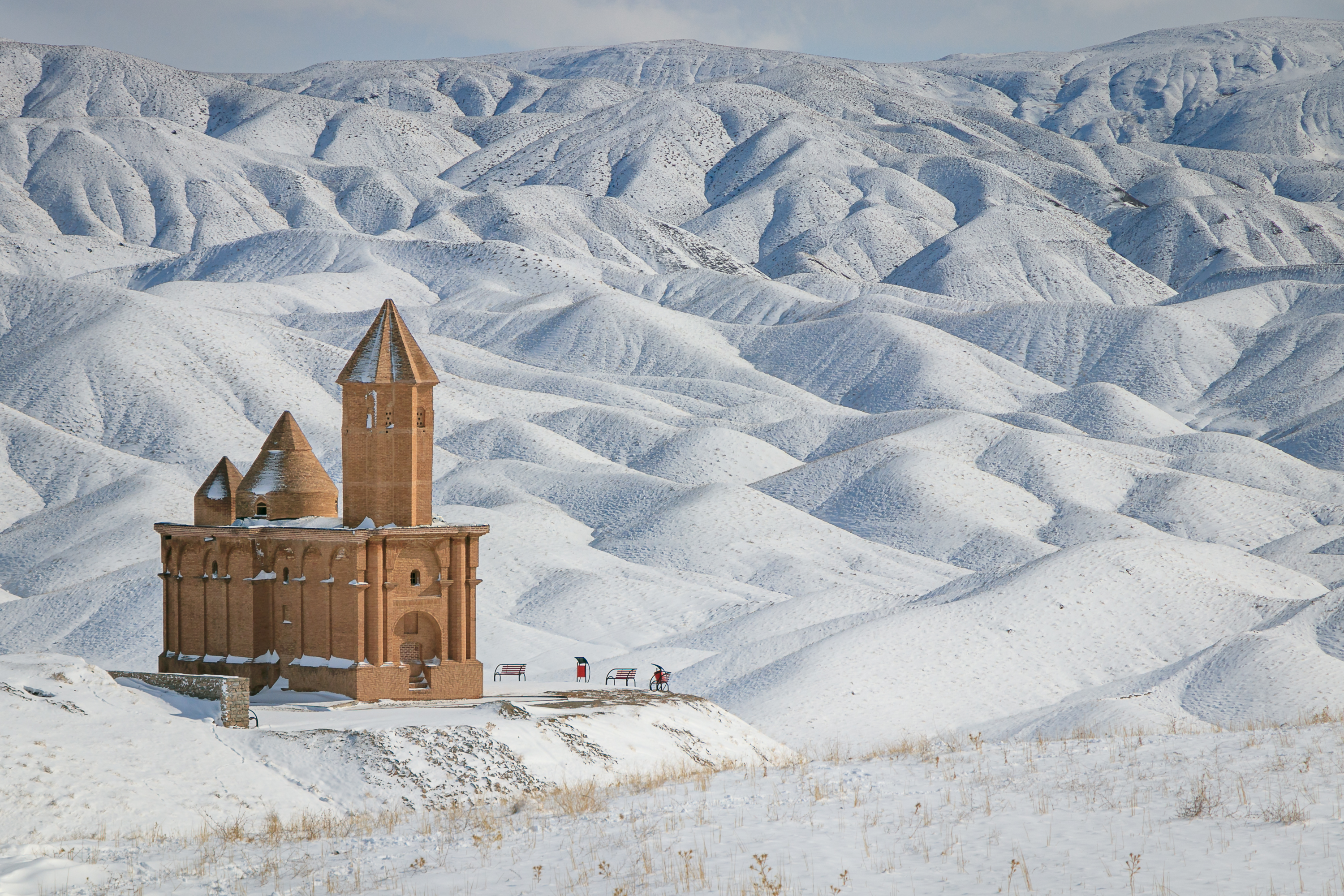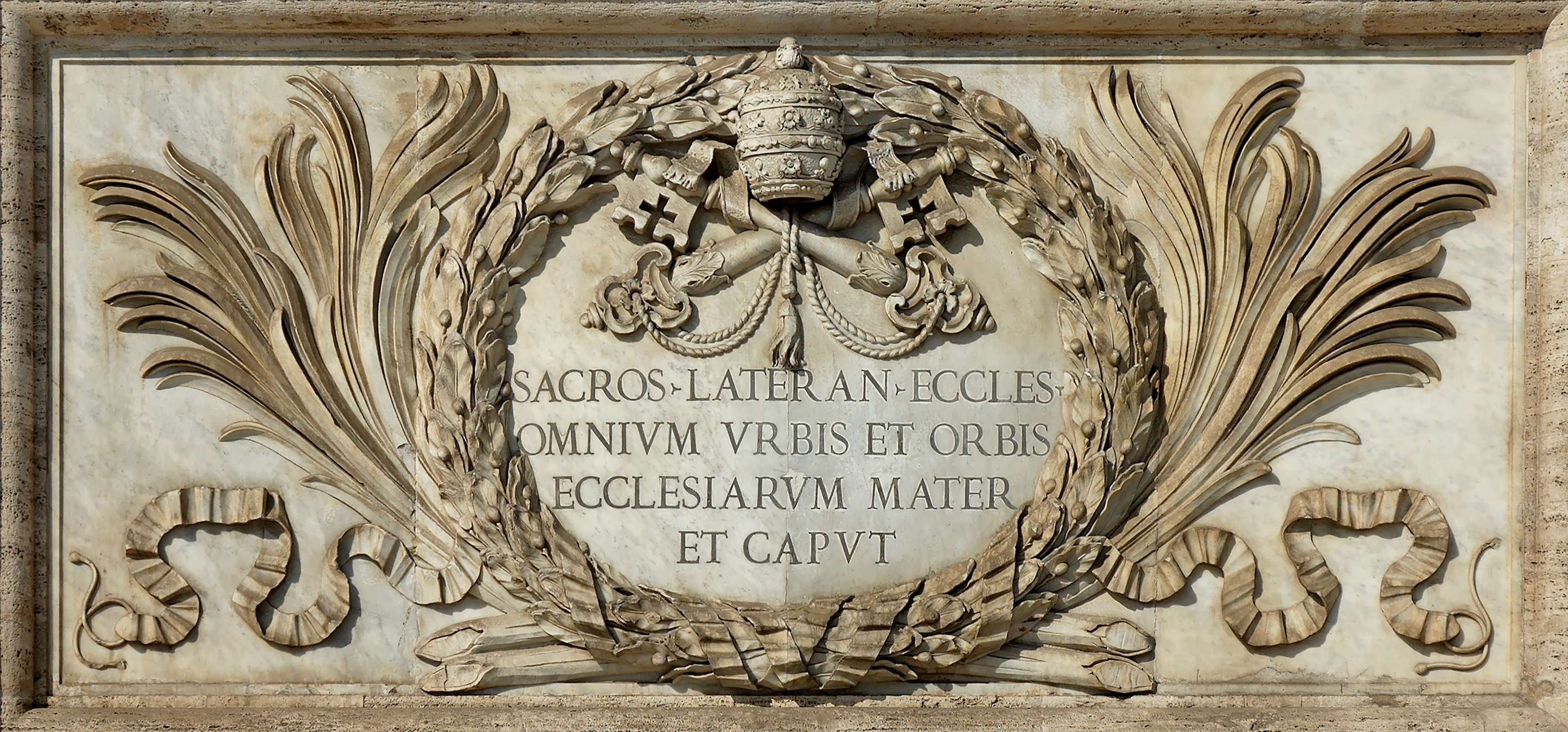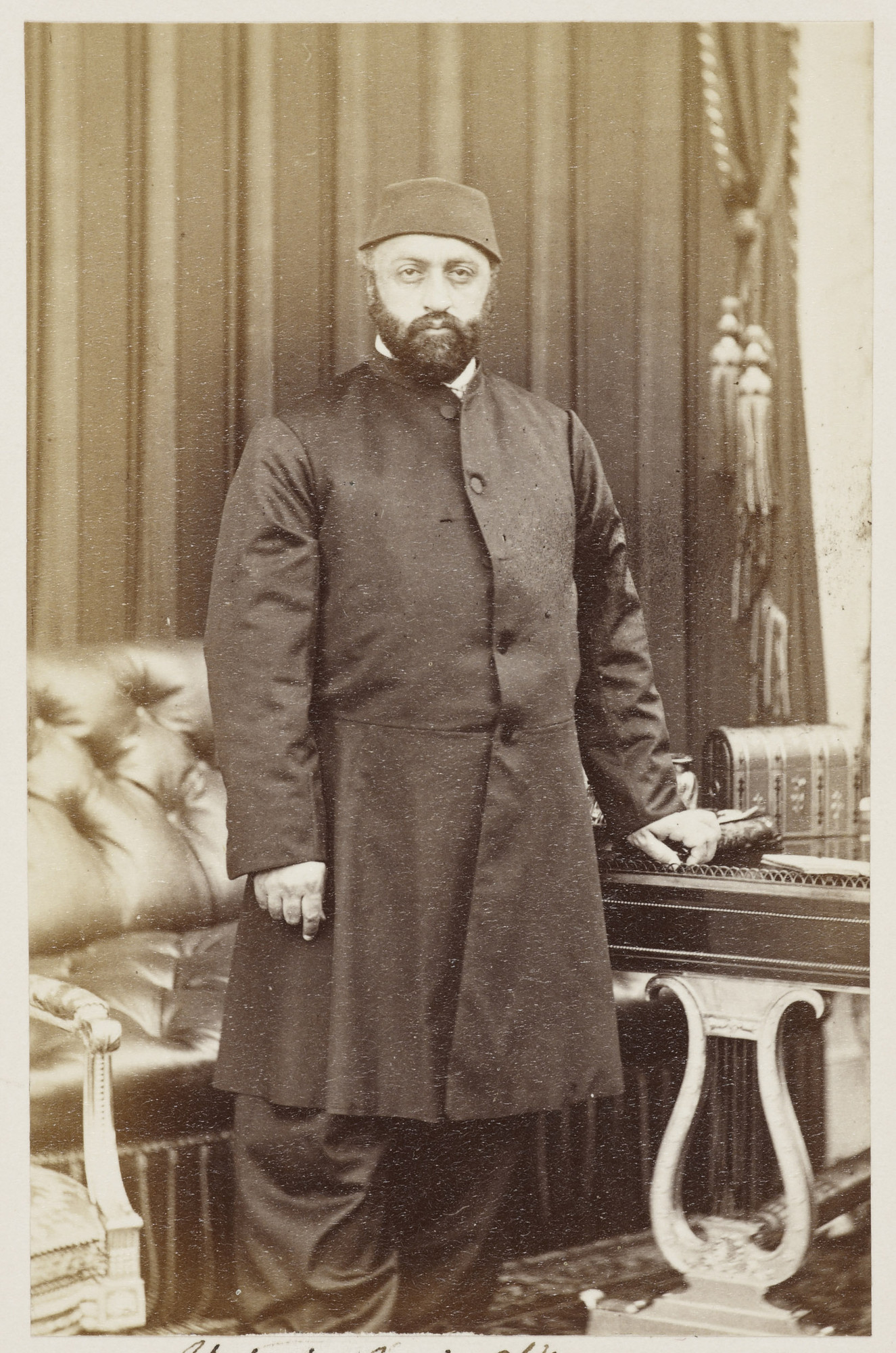|
Quartus Supra
''Quartus supra'' ('' wenty-our'') is an encyclical of Pope Pius IX, dated 6 January 1873, addressed to the Armenian Catholic Church. The encyclical discusses the then-ongoing schism within the Patriarchate of Cilicia, the election of bishops, and supremacy of the Holy See. Context In 1867, the bull ''Reversurus'' imposed the Latin standards for electing bishops onto the Armenian Catholic Church, specifically by barring the laity from the elections. This led to dissension among the Armenian Catholic laity. Additionally, the bull merged the Eparchy of Constantinople with the Patriarchate of Cilicia. In 1870, the First Vatican Council ruled that the Pope is preserved from error when speaking ''ex cathedra''. This prompted a schism within the Armenian Catholic Church in 1871 and the election of the rival Catholic Armenian patriarch Jacob Pahtiarian whom the Holy See considers, along with his followers, as schismatic. Followers of Jacob Pahtiarian seized local churches and fo ... [...More Info...] [...Related Items...] OR: [Wikipedia] [Google] [Baidu] |
Armenian Catholic Church
The Armenian Catholic Church is an Eastern Catholic Churches, Eastern Catholic particular church ''sui iuris'' of the Catholic Church. It accepts the papal supremacy, leadership of the bishop of Rome, and is therefore in full communion with the universal Catholic Church, including the Latin Church and the 22 other Eastern Catholic Churches. The Armenian Catholic Church is regulated by Eastern Canon law (Catholic Church), canon law, summed up in the ''Code of Canons of the Eastern Churches''. The head of the ''sui iuris'' Armenian Catholic Church is the Armenian Catholic patriarch of Cilicia, whose main cathedral and ''de facto'' archiepiscopal see is the Cathedral of Saint Elias and Saint Gregory the Illuminator, in Beirut, Lebanon. Armenian Caritas is the official aid organisation of the Catholic Church in Armenia. History The Armenian Apostolic Church, Armenian Church took issue with the 451 Council of Chalcedon and formally broke off communion with the Chalcedonian Ch ... [...More Info...] [...Related Items...] OR: [Wikipedia] [Google] [Baidu] |
Patriarch
The highest-ranking bishops in Eastern Orthodoxy, Oriental Orthodoxy, the Roman Catholic Church (above major archbishop and primate), the Hussite Church, Church of the East, and some Independent Catholic Churches are termed patriarchs (and in certain cases also '' popes'' – such as the pope of Rome or pope of Alexandria). The word is derived from Greek πατριάρχης (''patriarchēs''), meaning "chief or father of a family", a compound of πατριά (''patria''), meaning "family", and ἄρχειν (''archein''), meaning "to rule". Originally, a ''patriarch'' was a man who exercised authority as a pater familias over an extended family. The system of such rule of families by senior males is termed patriarchy. Historically, a patriarch has often been the logical choice to act as ethnarch of the community identified with his religious confession within a state or empire of a different creed (such as Christians within the Ottoman Empire). The term developed an ... [...More Info...] [...Related Items...] OR: [Wikipedia] [Google] [Baidu] |
Ottoman Empire
The Ottoman Empire (), also called the Turkish Empire, was an empire, imperial realm that controlled much of Southeast Europe, West Asia, and North Africa from the 14th to early 20th centuries; it also controlled parts of southeastern Central Europe, between the early 16th and early 18th centuries. The empire emerged from a Anatolian beyliks, ''beylik'', or principality, founded in northwestern Anatolia in by the Turkoman (ethnonym), Turkoman tribal leader Osman I. His successors Ottoman wars in Europe, conquered much of Anatolia and expanded into the Balkans by the mid-14th century, transforming their petty kingdom into a transcontinental empire. The Ottomans ended the Byzantine Empire with the Fall of Constantinople, conquest of Constantinople in 1453 by Mehmed II. With its capital at History of Istanbul#Ottoman Empire, Constantinople (modern-day Istanbul) and control over a significant portion of the Mediterranean Basin, the Ottoman Empire was at the centre of interacti ... [...More Info...] [...Related Items...] OR: [Wikipedia] [Google] [Baidu] |
Canon Law Of The Catholic Church
The canon law of the Catholic Church () is "how the Church organizes and governs herself". It is the system of religious laws and canon law, ecclesiastical legal principles made and enforced by the Hierarchy of the Catholic Church, hierarchical authorities of the Catholic Church to regulate its external organization and government and to order and direct the activities of Catholics toward the mission of the Church. It was the first modern Western world, Western legal system and is the oldest continuously functioning legal system in the West, while the unique traditions of Eastern Catholic canon law govern the 23 Eastern Catholic Churches, Eastern Catholic particular churches '. Positive ecclesiastical laws, based directly or indirectly upon immutable divine law or natural law, derive formal authority in the case of universal laws from Promulgation (Catholic canon law), promulgation by the supreme legislator—the supreme pontiff, who possesses the totality of legislative, executi ... [...More Info...] [...Related Items...] OR: [Wikipedia] [Google] [Baidu] |
Civil Law (legal System)
Civil law is a legal system rooted in the Roman Empire and was comprehensively codified and disseminated starting in the 19th century, most notably with France's Napoleonic Code (1804) and Germany's (1900). Unlike common law systems, which rely heavily on judicial precedent, civil law systems are characterized by their reliance on legal codes that function as the primary source of law. Today, civil law is the world's most common legal system, practiced in about 150 countries. The civil law system is often contrasted with the common law system, which originated in medieval England. Whereas the civil law takes the form of legal codes, the common law comes from uncodified case law that arises as a result of judicial decisions, recognising prior court decisions as legally binding precedent. Historically, a civil law is the group of legal ideas and systems ultimately derived from the '' Corpus Juris Civilis'', but heavily overlain by Napoleonic, Germanic, canonical, feuda ... [...More Info...] [...Related Items...] OR: [Wikipedia] [Google] [Baidu] |
Bishops In The Catholic Church
In the Catholic Church, a bishop is an ordained minister who holds the fullness of the sacrament of holy orders and is responsible for teaching doctrine, governing Catholics in his jurisdiction, sanctifying the world and representing the church. Catholics trace the origins of the office of bishop to the apostles, who it is believed were endowed with a special charism and office by the Holy Spirit at Pentecost. Catholics believe this special charism and office has been transmitted through an unbroken succession of bishops by the laying on of hands in the sacrament of holy orders. Diocesan bishops—known as eparchial bishops in the Eastern Catholic Churches—are assigned to govern local regions within the Catholic Church known as dioceses in the Latin Church and eparchies in the Eastern Churches. Bishops are collectively known as the College of Bishops and can hold such additional titles as archbishop, cardinal, patriarch, or pope. As of 2020, there were approximately ... [...More Info...] [...Related Items...] OR: [Wikipedia] [Google] [Baidu] |
Catholic Church
The Catholic Church (), also known as the Roman Catholic Church, is the List of Christian denominations by number of members, largest Christian church, with 1.27 to 1.41 billion baptized Catholics Catholic Church by country, worldwide as of 2025. It is among the world's oldest and largest international institutions and has played a prominent role in the history and development of Western civilization.Gerald O'Collins, O'Collins, p. v (preface). The church consists of 24 Catholic particular churches and liturgical rites#Churches, ''sui iuris'' (autonomous) churches, including the Latin Church and 23 Eastern Catholic Churches, which comprise almost 3,500 dioceses and Eparchy, eparchies List of Catholic dioceses (structured view), around the world, each overseen by one or more Bishops in the Catholic Church, bishops. The pope, who is the bishop of Rome, is the Papal supremacy, chief pastor of the church. The core beliefs of Catholicism are found in the Nicene Creed. The ... [...More Info...] [...Related Items...] OR: [Wikipedia] [Google] [Baidu] |
Papal Supremacy
Papal supremacy is the doctrine of the Catholic Church that the Pope, by reason of his office as Vicar of Christ, the visible source and foundation of the unity both of the bishops and of the whole company of the faithful, and as priest of the entire Catholic Church, has full, supreme, and universal power over the whole church, a power which he can always exercise unhindered: that, in brief, "the Pope enjoys, by divine institution, supreme, full, immediate, and universal power in the care of souls." The doctrine had the most significance in the relationship between the church and the temporal state, in matters such as ecclesiastic privileges, the actions of monarchs and even successions. Institution of papal supremacy The Catholic doctrine of papal supremacy is based on the idea that it was instituted by Christ and that papal succession is traced back to Peter the Apostle in the 1st century. The authority for the position is derived from the Confession of Peter document ... [...More Info...] [...Related Items...] OR: [Wikipedia] [Google] [Baidu] |
Papal Primacy
Papal primacy, also known as the primacy of the bishop of Rome, is an ecclesiological doctrine in the Catholic Church concerning the respect and authority that is due to the pope from other bishops and their episcopal sees. While the doctrine is accepted at a fundamental level by both the Catholic Church ( Eastern and Western) and the Eastern Orthodox Church, the two disagree on the nature of primacy. English academic and Catholic priest Aidan Nichols wrote that "at root, only one issue of substance divides the Eastern Orthodox and the Catholic Churches, and that is the issue of the primacy." French Eastern Orthodox researcher Jean-Claude Larchet wrote that, together with the '' Filioque'' controversy, differences in interpretation of this doctrine have been and remain the primary causes of schism between the Catholic Church and the Eastern Orthodox Church. In the Eastern Orthodox churches, some understand the primacy of the bishop of Rome to be merely one of greater honou ... [...More Info...] [...Related Items...] OR: [Wikipedia] [Google] [Baidu] |
Catholic (term)
The word ''catholic'' (derived via Late Latin , from the ancient Greek adjective () ) comes from the Greek phrase () , and is a combination of the Greek words () and () . The first known use of "Catholic" was by the church father Ignatius of Antioch in his '' Letter to the Smyrnaeans'' (circa 110 AD). In the context of Christian ecclesiology, it has a rich history and several usages. The word in English can mean either "of the Catholic faith" or "relating to the historic doctrine and practice of the Western Church". " Catholicos", the title used for the head of some churches in Eastern Christian traditions, is derived from the same linguistic origin. In non-ecclesiastical use, it derives its English meaning directly from its root, and is currently used to mean the following: * including a wide variety of things, or all-embracing; * universal or of general interest; * having broad interests, or wide sympathies; * inclusive, inviting. The term has been incorporate ... [...More Info...] [...Related Items...] OR: [Wikipedia] [Google] [Baidu] |
Ottoman Sultan Abdulaziz
Abdulaziz (; ; 8 February 18304 June 1876) was the sultan of the Ottoman Empire from 25 June 1861 to 30 May 1876, when he was 1876 Ottoman coup d'état, overthrown in a government coup. He was a son of Sultan Mahmud II and succeeded his brother Abdulmejid I in 1861. Abdulaziz's reign began during the Ottoman Empire's resurgence following the Crimean War and two decades of the Tanzimat reforms, though it was still reliant on European capital. The decade after his accession was dominated by the duo of Mehmed Fuad Pasha, Fuad Pasha and Mehmed Emin Âli Pasha, Aali Pasha, who accelerated reorganization of the Empire. The Vilayet Law was promulgated, Western codes were applied to more aspects of Law of the Ottoman Empire, Ottoman law, and the Millet (Ottoman Empire), millets were restructured. The issue of Tanzimat Dualism (politics), dualism continued to plague the empire, however. He was the first Ottoman sultan who traveled to Western Europe in a diplomatic capacity, visiting a n ... [...More Info...] [...Related Items...] OR: [Wikipedia] [Google] [Baidu] |
Full Communion
Full communion is a communion or relationship of full agreement among different Christian denominations or Christian individuals that share certain essential principles of Christian theology. Views vary among denominations on exactly what constitutes full communion, but typically when two or more denominations are in full communion it enables services and celebrations, such as the Eucharist, to be shared among congregants or clergy of any of them with the full approval of each. Definition and terminology Full communion is an ecclesiological term for an established relationship between Christian denominations that may be constituted by shared eucharist, doctrine, and ecclesiology. Different denominations emphasize different aspects or define the term differently. Several Protestant denominations base their idea of full communion on the Augsburg Confession which says that "the true unity of the church" is present where "the gospel is rightly preached and sacraments rightly admin ... [...More Info...] [...Related Items...] OR: [Wikipedia] [Google] [Baidu] |







